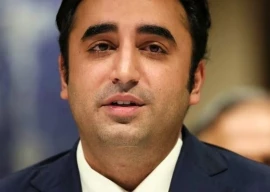
Cabinet members and two telecom operators have opposed the scheme of providing smartphones to the public on easy instalments.
The issue was taken up in a meeting of the cabinet held last month by the Ministry of Information Technology & Telecommunication, which proposed to issue a policy directive to encourage Cellular Mobile Operators (CMOs), as well as agencies working under agreement with CMOs, to provide smartphones to the public on easy instalments.
The ministry’s proposal was discussed in detail. However, some cabinet members observed that issuing a policy directive for a commercial activity did not seem appropriate for the Cabinet.
Cabinet members added that the proposed scheme might lead to an increase in the import of smartphones, and thereby also in the import bill of Pakistan, which had to be paid in foreign exchange.
Cabinet members further pointed out that of the four CMOs in the country, only two companies had concurred with the draft policy, whereas the remaining had opposed the proposal.
A member of the Cabinet reiterated that there was no precedent for a Cabinet directive relating to any commercial activity. Some members felt the policy directive could be unacceptable in the case of locally manufactured goods. They said that louder consultation was needed first.
The Ministry of Information Technology & Telecommunication (IT&T) explained that mobile broadband proliferation had a significant impact on increasing Gross Domestic Product (GDP), foreign direct investment, exports, and generating new business and employment opportunities.
Broadband services in Pakistan were playing a pivotal role in all sectors, particularly commerce, banking, health, and governance.
It was added that the current mobile broadband density in the country was almost 53%.
Read AI Pin: a futuristic tech unable to replace smartphones
It was further explained that a major deterrent to widespread adoption was the affordability of smartphones by the masses.
The ministry was, therefore, of the view that in order to minimise the digital divide and provide broadband services easily accessible to all communities, it was imperative to make smartphones affordable for users.
It was stated that the IT ministry had held consultations with the Pakistan Telecommunication Authority (PTA) and the Telecom Industry.
It had finalised the final draft policy directive to encourage Cellular Mobile Operators (CMOs), as well as agencies working under agreement with CMOs, to provide smartphones to the public on easy instalments.
The draft directive also contained remedial measures to deal with those defaulting on payments, along with a clause to review the directive after six months, if necessary.
The Ministry of IT&T argued that section 8(2A) of the Pakistan Telecommunication (Re-Organisation) Act, 1996, empowered the federal government to issue policy directives on any matter related to the telecommunications sector, provided that it was not inconsistent with the provisions of the Act.
The Ministry of IT&T solicited approval of the Cabinet for the draft policy directive.
The Cabinet considered the summary titled ‘Draft Policy Directive under Section 8(2A) of the Pakistan Telecommunications (Re-Organisation) Act 1996 for Enhancing Smartphone Penetration’ submitted by the Ministry of Information Technology & Telecommunication and directed the ministry to further analyse the proposal, hold broader consultations, and then resubmit a well-considered draft of the proposed policy for consideration by the Cabinet.
Published in The Express Tribune, February 7th, 2024.
Like Business on Facebook, follow @TribuneBiz on Twitter to stay informed and join in the conversation.












1641381027-0/download-(4)1641381027-0-270x192.webp)
































COMMENTS
Comments are moderated and generally will be posted if they are on-topic and not abusive.
For more information, please see our Comments FAQ